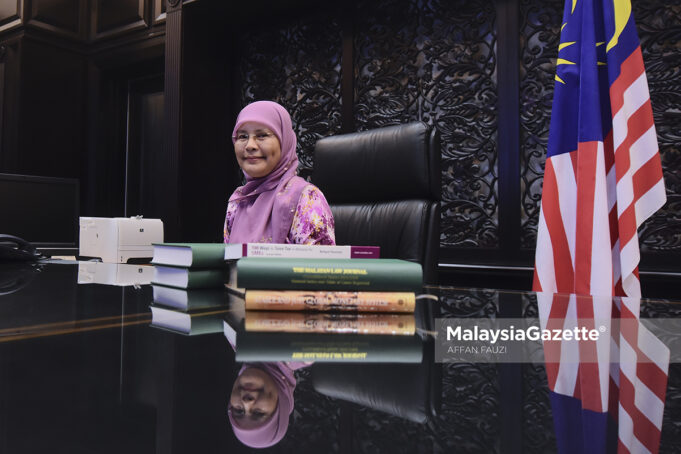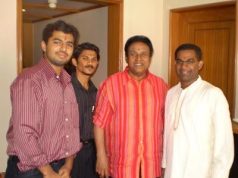PUTRAJAYA – The Federal Court declared that a provision in the Selangor syariah law which makes it an offence to engage in unnatural sex as unconstitutional.
A nine-member bench led by Chief Justice Tun Tengku Maimun Tuan Mat held that Section 28 of the Syariah Criminal Offences (Selangor) Enactment 1995 relates to matters that fall under the Federal Constitution’s Ninth Schedule Federal list, under the Parliament’s power to enact laws.
She said, Section 28 contravened the State List in the Ninth Schedule of the Federal Constitution which stipulated that state legislatures have no power to make law on matters that were included in the Federal list.
She said, the primary power to enact criminal law lies with the Parliament.
Chief Justice Tengku Maimun said that the State List allowed the creation of offences against the precepts of Islam but the powers were limited by the ‘preclusion clause’ and only on matters listed in the State List.
In a unanimous decision delivered through Zoom, the court granted a declaration sought by a 35-year-old man that Section 28 is invalid on grounds that it made provision with respect to a matter that the Selangor state legislature was not empowered to make laws and was therefore, null and void.
Section 28 of the enactment makes it an offence for any person who performs sexual intercourse against the order of nature with any man, woman or animal and shall be liable to a fine not exceeding RM5,000 or a maximum three-year jail term or whipping not exceeding six strokes or any combination upon conviction.
Meanwhile, Chief Judge of Malaya Tan Sri Azahar Mohamed delivered a summary of his separate ground of judgement to explain the important constitutional issues in the case and to give his view why the remedies sought by the petitioner should be granted.
He said, the Parliament is conferred the power to enact laws relating to sexual intercourse against the order of nature as that offence fell within the ambit of ‘criminal law’ in the Federal List.
“Parliament had made provision for the offence of sexual intercourse against the order of nature in two provisions of the Penal Code i.e. Section 377 and Section 377A of the Penal Code,” he said.
Justice Azahar said, Section 28 of the enactment is invalid as the state legislature made that provision with respect to a matter which it did not have the power to make, adding that only Parliament could enact such law.
He said, law on religious offences must be within the competency of the state legislature as the state alone could say what should be the religious offences.
“Any attempt to regulate the right of persons professing the religion of Islam to a particular belief, tenets, precepts and practices by way of creation of offences can only be done by legislation passed by state legislature pursuant to Clause 2 of Article 74 of the Federal Constitution,” he said, adding that religious offences have nothing to do with criminal law.
The other judges who presided on the bench were Court of Appeal President Tan Sri Rohana Yusuf, Chief Judge of Sabah and Sarawak Datuk Abang Iskandar Abang Hashim and Federal Court judges Datuk Seri Mohd Zawawi Salleh, Datuk Nalini Pathmanathan, Datuk Vernon Ong Lam Kiat, Datuk Zabariah Mohd Yusof and Datuk Seri Hasnah Mohammed Hashim.
The man obtained leave from the Federal Court to commence proceedings by way of a petition against the Selangor government to seek for a declaration that Section 28 of the enactment is invalid.
On August 21, 2019, the Chief Syarie Prosecutor through the syariah prosecutor preferred a charge under Section 28 of the enactment against the man in the Selangor Syariah High Court.
The man, whose identity is being withheld on the request of his lawyers was charged with attempting to commit sexual intercourse against the order of nature with another male person in a house in Selangor on 9 November 2018.
He pleaded not guilty to the charge and his trial at the Syariah High Court has been stayed pending the outcome of his legal challenge.
Lawyers Datuk Malik Imtiaz Sarwar and A. Surendra Ananth represented the petitioner. Selangor state legal advisor Datuk Salim Soib @ Hamid appeared for the Selangor government while lawyer Halimatunsa’diah Abu Ahmad acted for the Selangor Islamic Religious Council (MAIS).
In a joint statement, Malik and Surendra said the court conclude that it is Parliament that has primacy in enacting laws on criminal offences.
They said, although state legislative assemblies can make laws on offences against precepts of Islam, the legislative power does not extend to the matters that Parliament can make criminal law.
They said that the court has clarified that the State Legislative Assembly can only enact purely on religious offences where such offences would fall within the jurisdiction of the Syariah Courts.
“The court has clarified that there is one system of general criminal law, applicable to all persons and another system of purely religious law, in which offences can only relate to matters of religion,” they said, adding that would ensure the law is applied without discrimination. -BERNAMA


















Any state criminal laws against unnatural sex are within the Federal Constitution criminalizing unnatural sex. So, there is no constitutional violation by the state criminal laws against unnatural sex, right?
Besides, the Federal Constitution has empowered the parliament as well as individual states to make laws. Subsequently, there is no big deal after all.